(CNN) French President Francois Hollande and German Chancellor Angela Merkel
are on their way to Moscow on Friday bearing a new proposal for peace
negotiations to end the bitter conflict in eastern Ukraine.
They are due to meet Russia's Russian President Vladimir Putin, a day after they took their plan to Ukraine's leaders in Kiev.
The new diplomatic push comes as worsening conflict in eastern Ukraine is taking an increasingly heavy toll on civilians.
Speaking
in Berlin before her departure for Moscow, Merkel said she hoped to
secure a ceasefire but the prospects were not certain.
She
added, though, that she was "sure that there is no military solution to
the conflict," and that she and Hollande would "work against this
escalation with all our powers to stop this horror," as they meet with
Putin.
Merkel
made clear that she would not do a deal with Russia that bypasses
Ukraine's leadership, saying she "will not decide anything over the
heads of anyone." The solution must be in line with a previous peace
plan agreed in Minsk, Belarus, in September, she said.
Russia,
Ukraine and separatist leaders all signed that pact, but continued
fighting left it in shreds. It's not yet clear how the new proposal
differs from the Minsk agreement.
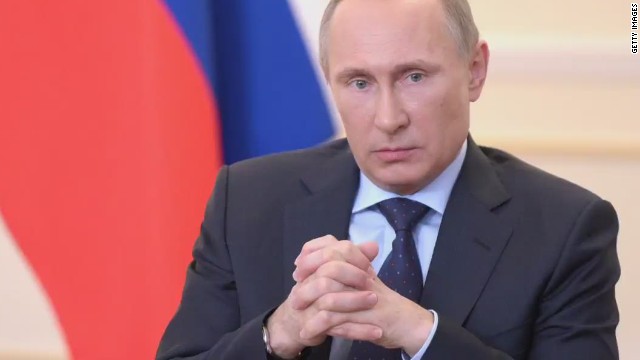
Putin: Still strong in Russia 01:23
Hollande said Thursday that the joint proposal for new negotiations would be "based upon the territorial integrity of Ukraine."
The
pair hope the proposal will be acceptable to all parties in the
conflict, he said. But he added that "the option of negotiation, of
diplomacy, cannot be extended indefinitely."
A
spokesman for Putin, Dmitry Peskov, called the upcoming meeting between
Putin, Merkel and Hollande "a positive step in settlement of the
Ukrainian crisis."
Western leaders and
Kiev accuse Russia of fostering the conflict by providing weapons and
training to the pro-Russian separatists battling Ukrainian forces in the
Donetsk and Luhansk regions, as well as sending regular Russian troops
over the border to fight. Moscow denies the claims.
Civilians at risk
Amid
the diplomatic maneuverings, there were reports from Ukraine on Friday
suggesting that more civilians could be evacuated from current conflict
zones. Both sides in the conflict have been blamed for shelling civilian
areas.
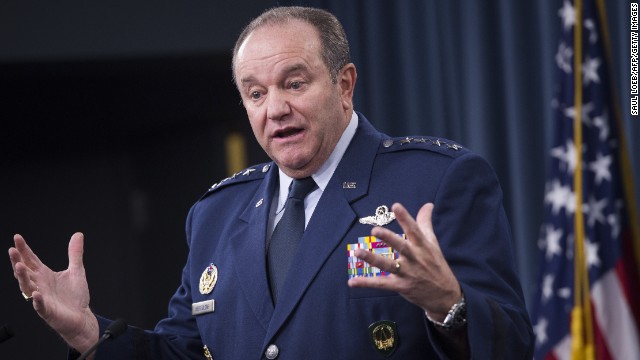
NATO: Separatists pushing for more contiguous area 09:27
The
self-proclaimed Donetsk People's Republic said on its website that it
had offered Kiev the chance for civilians to leave the city of
Debaltseve, northeast of Donetsk city, where shells have been falling
for days.
Debaltseve is under
government control and police efforts to evacuate civilians have been
under way for some days, hindered by the shelling of the main road out
of the city.
According to the Ukrainian
counter-terrorist operation press office, the shelling in the area has
decreased since Thursday. But it's unclear how many civilians still
remain in Debaltseve.
The latest
government statement said that arrangements for the evacuation of people
from dangerous areas in the Donetsk and Luhansk regions were "ongoing."
The
press office of the self-proclaimed Luhansk People's Republic said the
evacuation of civilians had started in the town of Chernukhino, in
Luhansk, and would continue until the afternoon.
Civilians
increasingly are falling victim to the violence, with at least 224
killed and more than 540 injured in the final three weeks of January,
the U.N. High Commissioner for Human Rights said Tuesday.
Kerry: Pull back weapons
U.S. Secretary of State John Kerry, speaking on a visit to Kiev on Thursday, insisted that the ball was in Moscow's court to resolve the crisis in its neighboring country.
He called on Moscow to take three steps he said would enable a diplomatic solution "that is staring everyone in the face."
Those
are: pulling back heavy weapons beyond the range of civilian
populations, removing foreign troops and heavy equipment from Ukraine,
and closing the Russia-Ukraine border.
Kerry
said no one one wanted conflict with Russia but that "we cannot close
our eyes" to tanks, heavy weapons and soldiers crossing the border from
Russia into Ukraine.
Russian leaders
must be blind if they keep denying that forces from their country have
crossed the border, Ukraine's Prime Minister Arseniy Yatsenyuk added.
"If
they need, I can give them my glasses," he said. "It is crystal clear
that (the) Russian military is on the ground," he said. "We are not
fighting so-called rebels or guerrillas. We are fighting with the
Russian regular army."
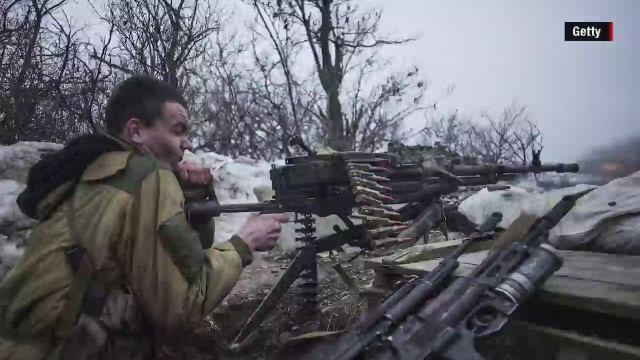
Why is there conflict in Ukraine? 02:13
Peskov,
told CNN that Kerry's remarks in Ukraine "just shows the unwillingness
and inability of the United States to participate in settlement of the
Ukrainian crisis."
He added, "As for
Russian tanks, allegedly crossing Russian-Ukrainian border, we've
commented on this before -- there are no Russian tanks or army in
Ukraine, such accusations are not true."
Munich meetings
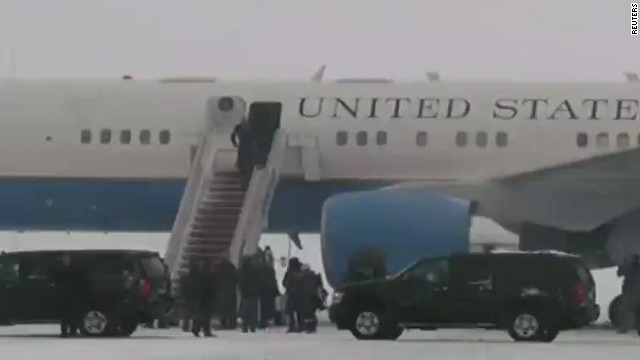
Will the U.S. offer Ukraine lethal aid? 01:20
The annual Munich Security Conference starts Friday in Germany, when the crisis in Ukraine is likely again to top the agenda.
NATO
Secretary General Jens Stoltenberg said he would hold bilateral
meetings in Munich this weekend with Kerry, U.S. Vice President Joe
Biden, Poroshenko and Russian Foreign Minister Sergey Lavrov.
Biden is also holding meetings with European leaders on Friday in Brussels, Belgium.
The
European Union and United States have already imposed a series of
financial sanctions targeting Russian interests and separatist leaders
in Ukraine.
U.S. officials this week
noted that the United States is now considering sending so-called
defensive lethal aid to the Ukrainian government, which could include
anti-tank, anti-air and anti-mortar systems.
NATO defense ministers decided Thursday
to establish new NATO command and control units in Estonia, Latvia,
Lithuania, Romania, Bulgaria and Poland, close to Russia's western
borders.
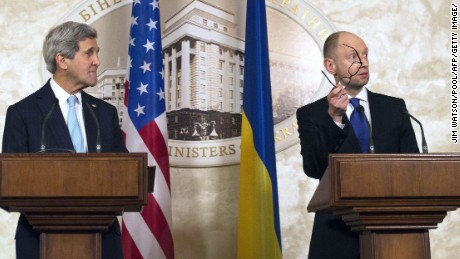
No comments:
Post a Comment